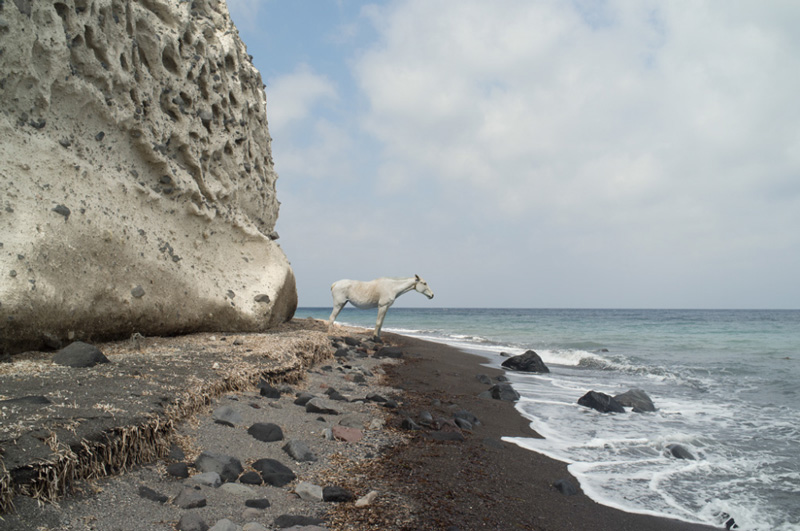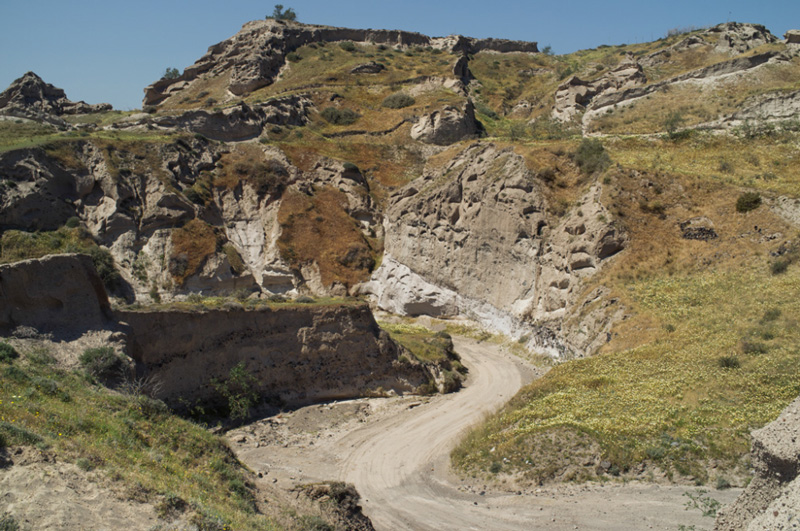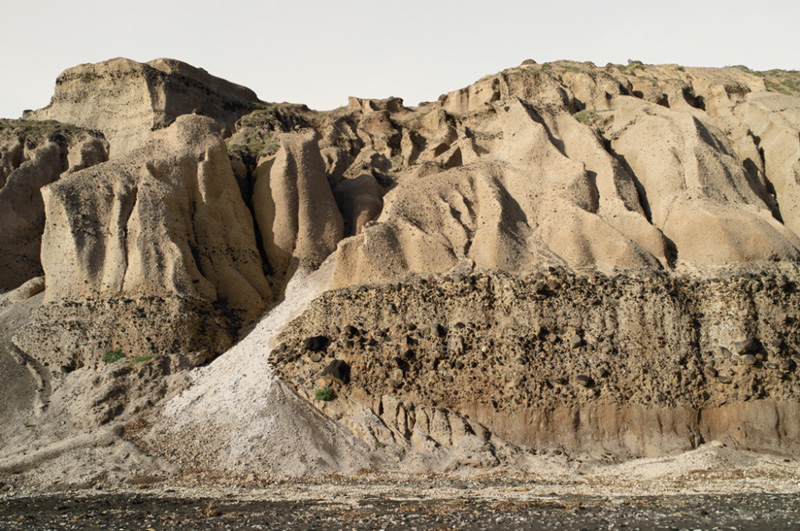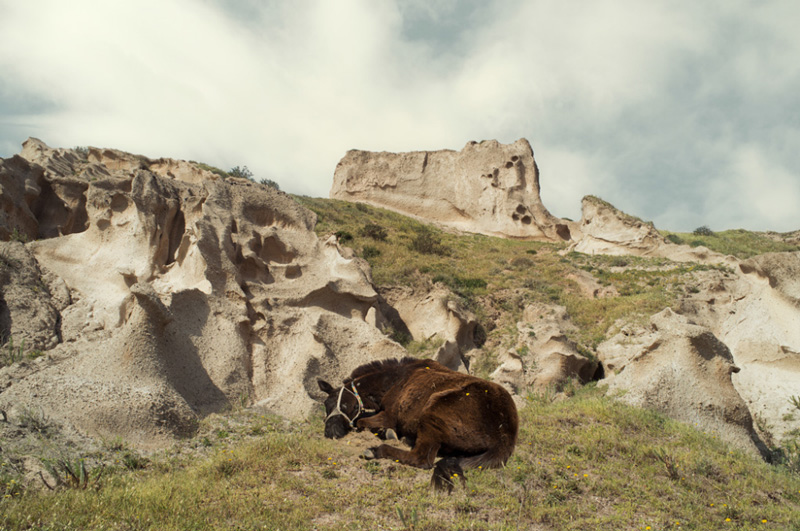
We asked Petros Koublis to be our guest for a week and he agreed. Petros sent us a selection of images from a very recent project (just a couple of months old) that he did on the island of Santorini.
I’m still working on the text around this series, but there is this poem by Greek nobelist poet George Seferis, a poem that has influenced a lot this work of mine.
Santorini – The naked child
Bend if you can to the dark sea forgetting
the flute’s sound on naked feet
that trod your sleep in the other, the sunken life.
Write if you can on your last shell
the day the place the name
and fling it into the sea so that it sinks.
We found ourselves naked on the pumice stone
watching the rising islands
watching the red islands sink
into their sleep, into our sleep.
Here we found ourselves naked, holding
the scales that tipped toward injustice.
Instep of power, unshadowed will, considered love,
projects that ripen in the midday sun,
course of fate with a young hand
slapping the shoulder;
in the land that was scattered, that can’t resist,
in the land that was once our land
the islands, -rust and ash- are sinking.
Altars destroyed
and friends forgotten
leaves of the palm tree in mud.
Let your hands go traveling if you can
here on time’s curve with the ship
that touched the horizon.
When the dice struck the flagstone
when the lance struck the breast-plate
when the eye recognized the stranger
and love went dry
in punctured souls;
when looking round you see
feet harvested everywhere
dead hands everywhere
eyes darkened everywhere;
when you can’t any longer choose
even the death you wanted as your own
- hearing a cry,
even the wolf’s cry,
your due:
let your hands go traveling if you can
free yourself from unfaithful time
and sink-
So sinks whoever raises the great stones






